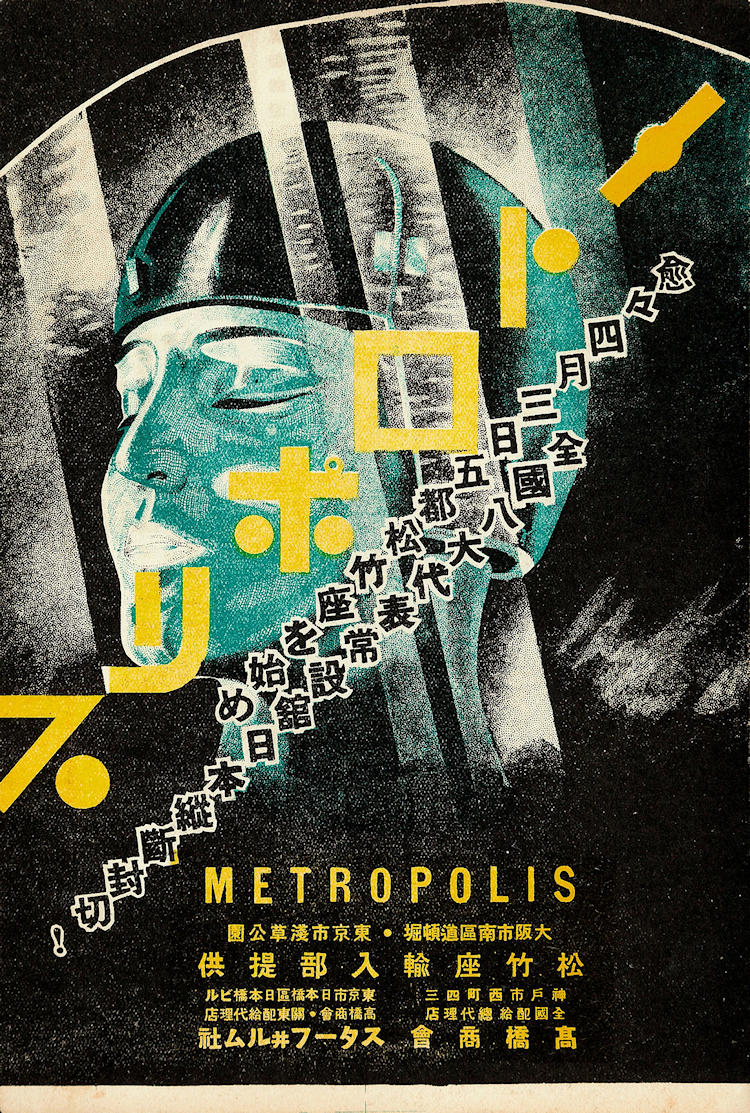
Of Fritz Lang’s Metropolis, the critic Siegfried Kracauer wrote that “the Americans relished its technical excellence; the English remained aloof; the French were stirred by a film which seemed to them a blend of Wagner and Krupp, and on the whole an alarming sign of Germany’s vitality.” By Wagner, Kracauer of course meant the composer; Krupp referred to the arms manufacturer Friedrich Krupp AG. We must remember that Metropolis first came out in the Germany of 1927, and thus into a sociopolitical context growing more volatile by the moment.
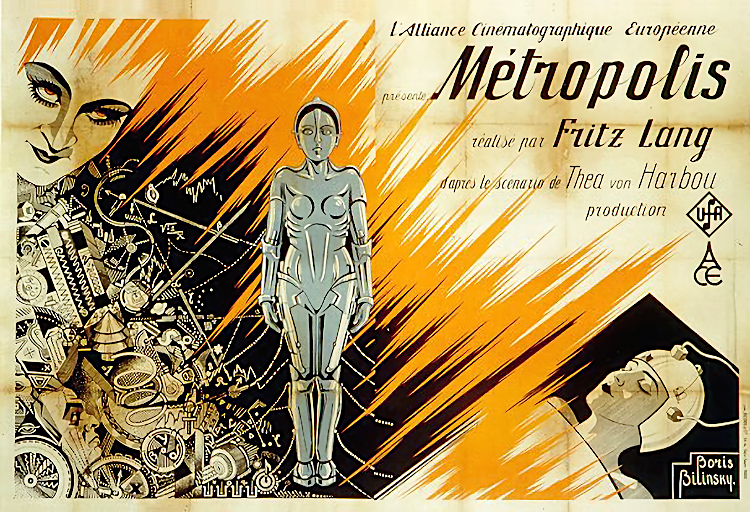
But the film also came out in the golden age of silent cinema, and every serious moviegoer in the world must have been enormously eager for a glimpse of the spectacle of the elaborate dystopian future Lang and his collaborators had put onscreen.
And screen around the world that spectacle did, albeit in a version censored and otherwise cut in a variety of ways that Lang found terribly displeasing. However bowdlerized the Metropolis seen by so many back then, it proved to be so much of an attraction that its advertising materials became nearly as artistic as the film itself.

At Stephen O’Donnell’s blog Gods and Foolish Grandeur, you can see a selection of the posters for Metropolis put up during the late nineteen-twenties and early nineteen-thirties in the movie theaters of various countries, including Sweden, France, Japan, and Australia.
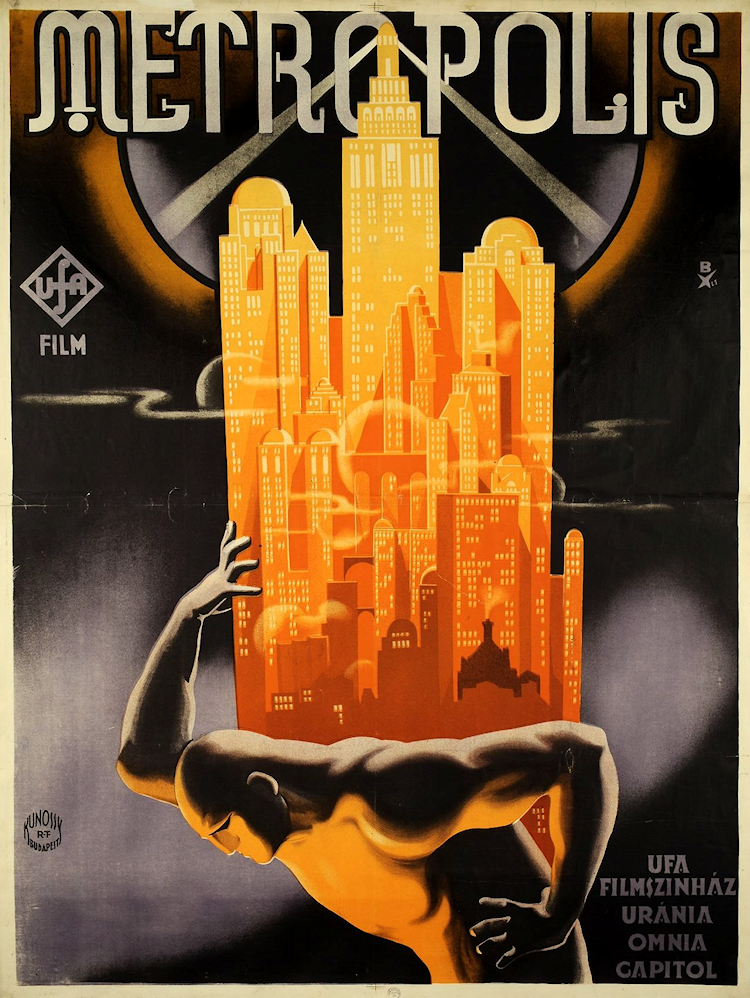
All are visually striking, but it probably comes as no surprise that the American ones — products, after all, of the culture that gave rise to Hollywood — get especially breathless with the accompanying text.
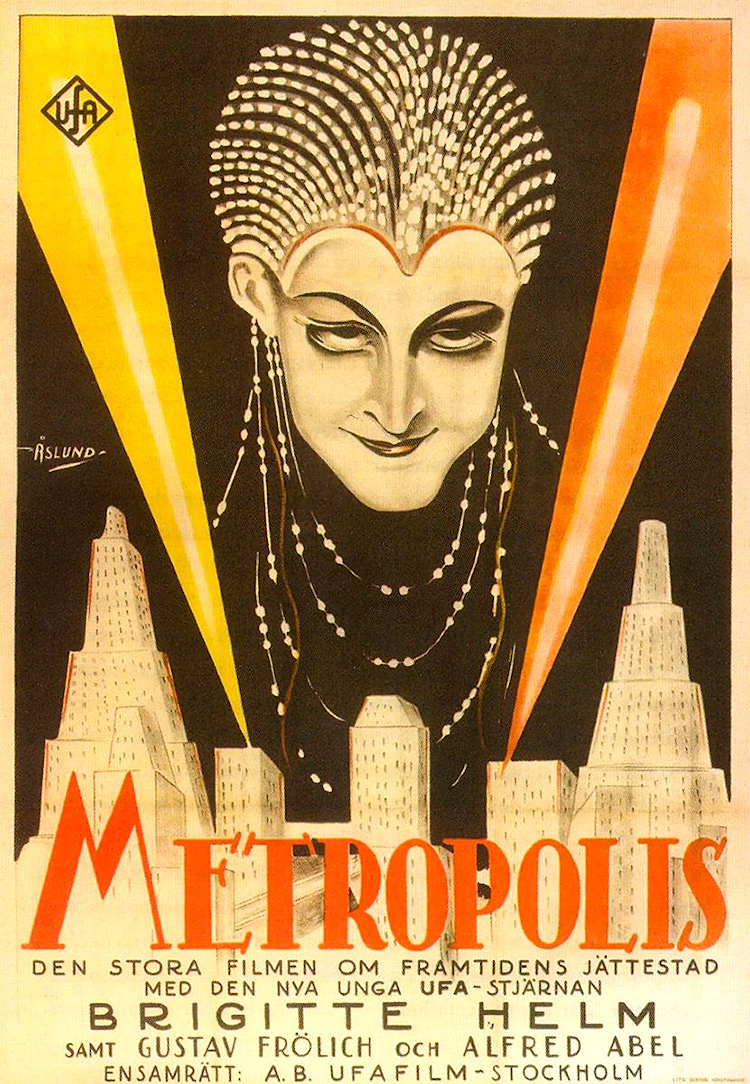
“FANTASTIC FUTURISTIC FATALISTIC,” promises one poster, but not without adding “IMAGINARY IMPRESSIVE IMPOSSIBLE” and “EROTIC EXOTIC ERRATIC.” Another sheet holds out to viewers a flight “HIGH INTO THE AIR!” Lest they suspect that wouldn’t give them their quarter’s worth of fantasy, it also promises them a plunge “DEEP IN THE EARTH!” A different tagline, also used in other English-speaking countries, declares of the film that “Everyone is talking about it, yet no one can describe it!”
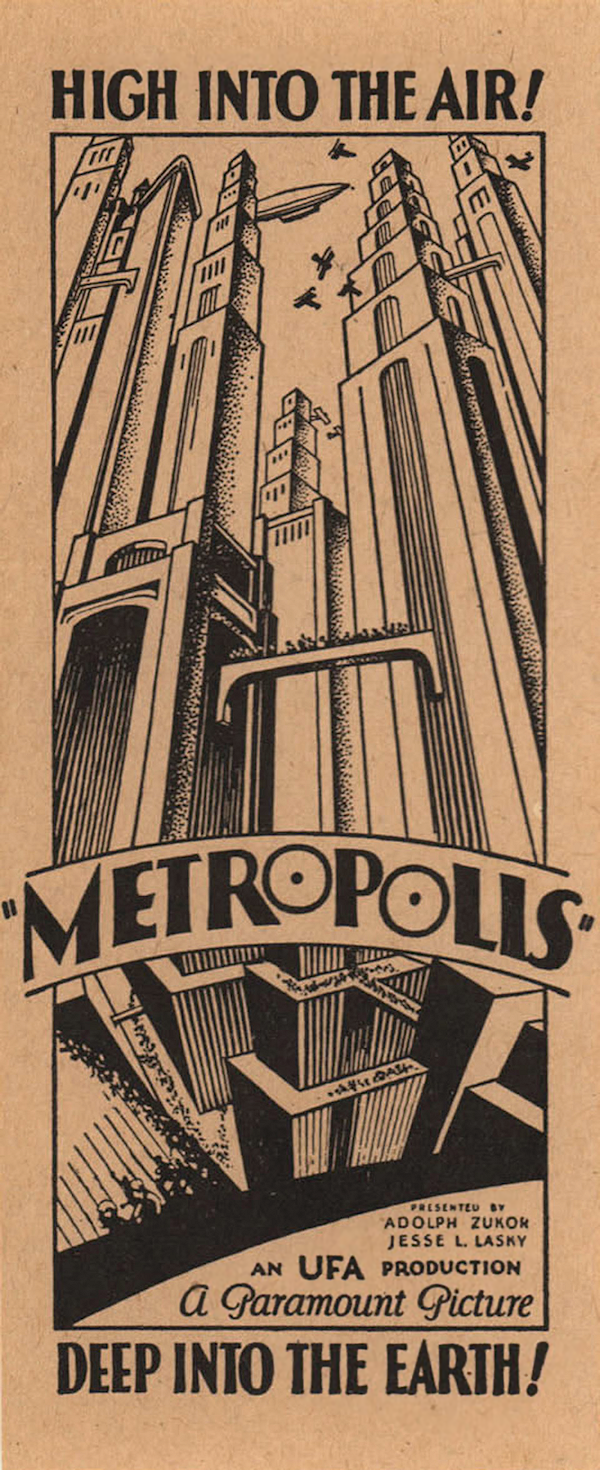
That’s not for lack of trying, least of all by the distributor’s publicity department: another poster’s detailed paragraph boasts of a “mighty, surging love drama of the two worlds that work out their moiling destinies within the confines of a great city.” But over the generations — and after restorations — Metropolis has surpassed these claims with its value as a work of cinematic art, and indeed become as timeless as a question once used to promote it: “What’s the world coming to?”
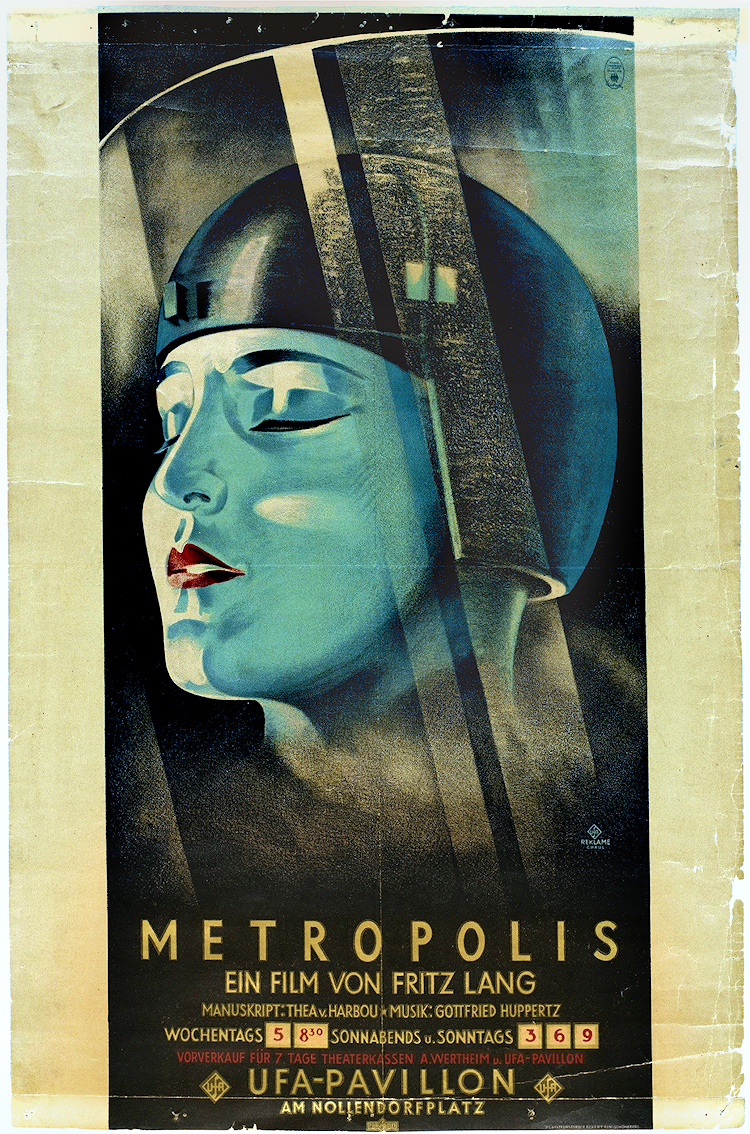
Related content:
Metropolis: Watch Fritz Lang’s 1927 Masterpiece
Read the Original 32-Page Program for Fritz Lang’s Metropolis (1927)
H. G. Wells Pans Fritz Lang’s Metropolis in a 1927 Movie Review: It’s “the Silliest Film”
Gaze at Global Movie Posters for Hitchcock’s Vertigo: U.S., Japan, Italy, Poland & Beyond
Based in Seoul, Colin Marshall writes and broadcasts on cities, language, and culture. His projects include the Substack newsletter Books on Cities, the book The Stateless City: a Walk through 21st-Century Los Angeles and the video series The City in Cinema. Follow him on Twitter at @colinmarshall or on Facebook.


Leave a Reply